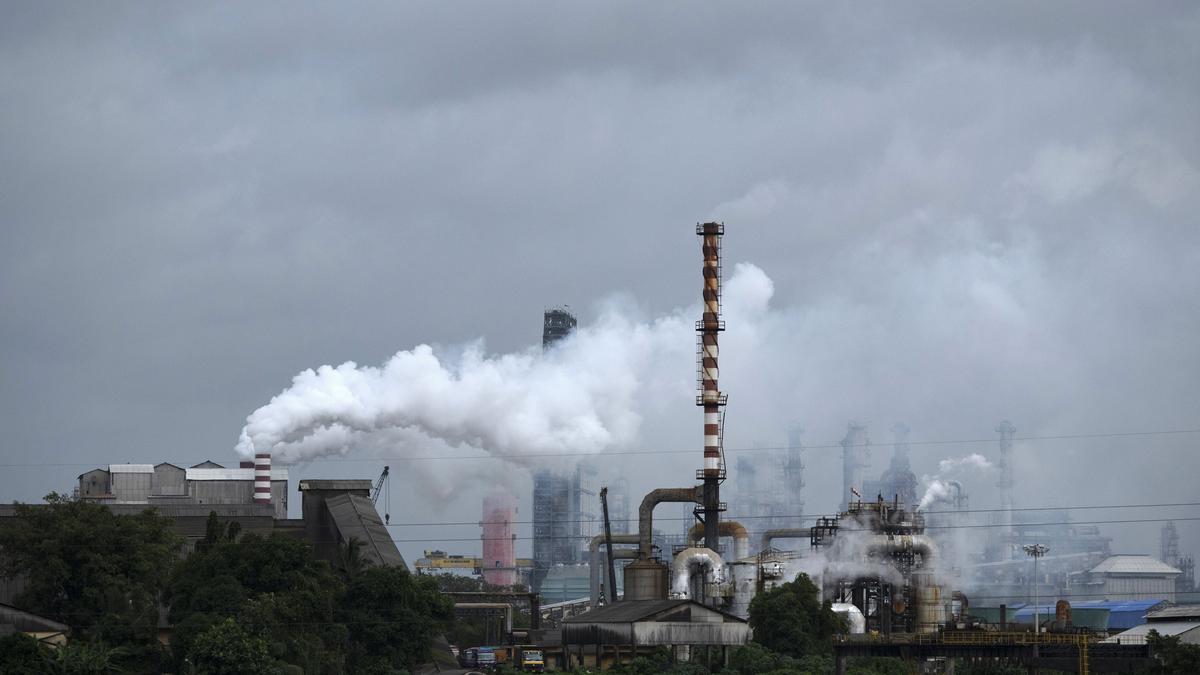
At COP28, Indian industry leaders welcome EU’s carbon tax on imports
The Hindu
“We welcome CBAM.” Indian industry representatives have echoed this at the United Nation’s 28th Conference of Parties (COP28) referring to Europe’s new carbon tax launched last October.
Chetan Bhattacharji
“We welcome CBAM.” Indian industry representatives have echoed this at the United Nation’s 28th Conference of Parties (COP28) referring to Europe’s new carbon tax launched last October.
As climate talks approach the slog overs at the climate conference being held in Dubai, the conversations are becoming shorter and frank. This includes representatives from India speaking at dozens of side events.
Some of them are already dealing with a new pain point which is the European Union’s Carbon Border Adjustment Mechanism (CBAM). Simply put, it’s a carbon tax on the imports of carbon-intensive sectors, initially like iron and steel, cement, fertiliser and aluminium depending on the carbon emissions emitted during the manufacturing process. It is expected to drive up prices; for example, for aluminium it is estimated to be in the range of 2-5%.
However, while Indian government leaders have described it as an “unfair” tax and are taking it up with the World Trade Organisation (WTO), industry representatives at the UN Climate Change conference are advocating a change of tactic.
Rajiv Mangal, Tata Steel’s Vice President of Safety, Health and Sustainability spoke to me at a side event on steel decarbonisation. “CBAM is good. CBAM is good because it will force the market to pay the price. So I would go to the extent that something similar should come up in most of the countries. Otherwise there is no economic incentive for a steel maker to reduce emissions. Because today, the reduction of emissions is a high cost. Market is not going to support you to say just because you are making green steel you can compromise on your profitability. The market does not do that. So there has to be some economic incentive or a stick for greening.”
Seema Arora, Deputy Director General at the Confederation of Indian Industry (CII) and head of the CII-ITC Centre of Excellence for Sustainable Development, echoes this approach. “I don’t think there is any point in saying we can’t accept it because it is not non-discriminatory. They are saying the same rule applies to our companies also. So you can’t fight it in the WTO although I know they are going to fight which is okay. But I don’t think much result will come out of that.”

The Union Budget unveiled on February 1, 2025, has come at a time of unprecedented global uncertainty and a flagging domestic economy. The real GDP growth is estimated at 6.4% for 2024-25 and between 6.3-6.8% for 2025-26, a far cry from >8 percent growth required annually to make India a developed nation by 2047. While much attention has been devoted to the demand stimulus through income tax cuts, not enough is said about the proposed reforms in urban development, tariff rationalisation, and regulatory simplification aimed at making Indian cities and corporates more competitive. Since the majority of economic activity is located in cities (urban areas account for ~55% of GDP) and produced by large corporates (~40% of the national output and 55% of India’s exports), the above-mentioned reforms have a pivotal role in improving India’s trend growth rate. Below we unpack each reform.












